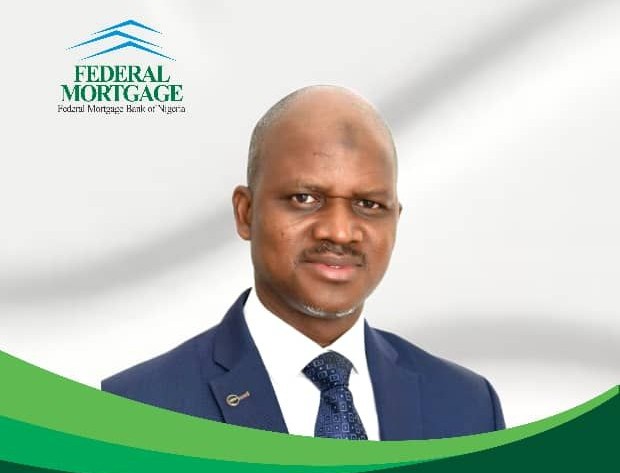FMBN Posts ₦6.5bn Q1 Surplus, Signals Stronger Financial Discipline and Mortgage Access Reforms

Nigeria’s apex public housing finance institution, the Federal Mortgage Bank of Nigeria (FMBN), has posted a first-quarter surplus of ₦6.5 billion in 2025, reinforcing its trajectory toward fiscal sustainability, increased mortgage access, and institutional transparency. This comes on the heels of a record ₦11.5 billion operational surplus in 2024, the Bank’s most robust financial performance in over three decades.
The FMBN Managing Director and Chief Executive, Shehu Osidi, made the announcement during a courtesy reception for the Bank’s new Board Chairman, Dr. Nasir Gawuna, in Abuja, emphasizing that the results are a testament to the strategic reforms instituted since the new management assumed office in February 2024.
“Our reforms are not cosmetic. The numbers speak for themselves. We’re stabilising our books while expanding real access to affordable housing finance,” Osidi affirmed.
Turning a Bureaucratic Goliath into a Performance Engine
Traditionally seen as a lumbering bureaucratic lender with sluggish disbursement rates and opaque governance, FMBN has begun shedding that reputation. In less than a year, the institution has:
- Cleared four years of unaudited accounts (2018–2021) in under 9 months
- Approved ₦71.5 billion in housing loans in 2024, up from ₦39.7 billion in 2023
- Recovered ₦18.9 billion in non-performing loans, mostly via internal Recovery Task Teams
- Expanded National Housing Fund (NHF) collections to ₦103 billion, up from ₦100 billion in 2023
- Onboarded 658 new employer organisations and 178,619 employees, compared to 556 and 113,577 in 2023
These milestones reflect a decisive internal shift toward prudence, productivity, and digital enablement, with Osidi stressing that “customer service and technology are now central to FMBN’s transformation agenda.”
Beyond Bricks and Mortar: A Market-Responsive Strategy
FMBN is not just chasing numbers—it is reengineering its operational model to align with Nigeria’s evolving socio-economic and demographic realities.
In a market where over 80% of Nigerians lack access to formal housing finance, the Bank is doubling down on inclusion. It is preparing to launch new mortgage products tailored for the Diaspora, informal sector workers, and non-interest (Islamic) banking segments—groups historically excluded from mainstream mortgage schemes.
“We’ve secured CBN approval to roll out ethical, non-interest mortgage products. These innovations cater to Nigerians who require faith-aligned or alternative financing models,” Osidi noted.
Additionally, FMBN is in active talks with NIDCOM and the CBN to operationalise a Diaspora NHF Mortgage Loan, which will allow Nigerians abroad to seamlessly invest in the domestic real estate market and own homes back home.
Why This Matters: Real Estate as an Engine of Economic Stability
FMBN’s improving numbers and evolving strategy could have a far-reaching impact on Nigeria’s real estate value chain, from developers to building material manufacturers, insurers, and fintech-enabled mortgage brokers. Its rising loan approvals offer a funding alternative for the country’s estimated 22 million housing deficit, while its surplus signals a rare instance of sustainability in a public institution.
The real estate sector, which contributes just over 5% to Nigeria’s GDP, could see a substantial uplift if FMBN maintains this growth trajectory, especially as it deepens collaboration with private developers, REITs, and housing cooperatives.
BRANDECONOMY Insight
With strong quarterly surpluses, rising disbursement figures, and a broader product mix on the horizon, FMBN is fast transforming from a sleepy public lender into a strategic player in Nigeria’s real estate economy. The key to sustaining this momentum will be execution discipline, digital integration, and regulatory agility.
Real Estate Outlook: Upward
FMBN 2025 Q1 Surplus: ₦6.5 Billion
Loan Approvals (2024): ₦71.5 Billion
NHF Contributions (2024): ₦103 Billion
NPL Recovery (2024): ₦18.9 Billion
New Product Launches: Diaspora, Non-Interest, Informal Sector Mortgages (Q2 2025)
Stay tuned to BRANDECONOMY for more deep dives into Nigeria’s housing finance and real estate ecosystem.











